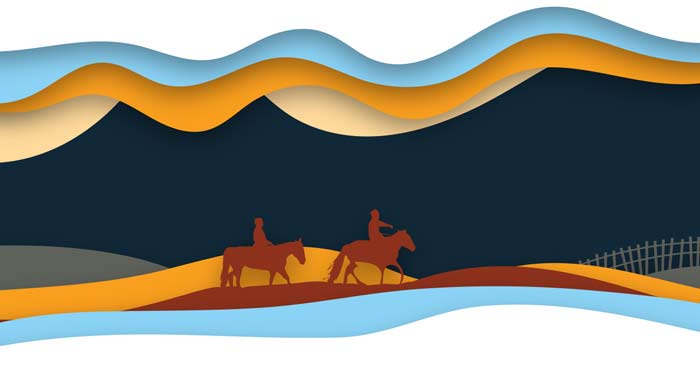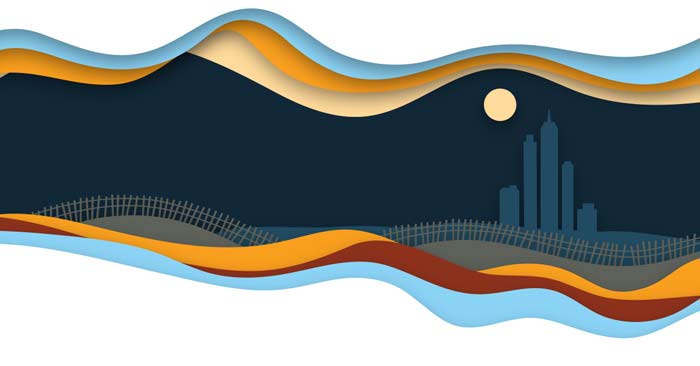Nomads: Helping Them to Face the Growing Challenges

I grew up as a nomadic pastoralist in The Horn of Africa. Today I work among my people, catalyzing the formation of the church while addressing the various challenges of change among the people. These challenges are macro in scale, usually causing disturbances to nomadic lifestyle and systemic poverty. There are natural and intentional challenges.
Natural challenges include persistent drought and reoccurring famines, but they also include the stresses of population increase in nearby settled populations. When settled communities grow, they can impinge on nomadic territories, shrinking available grazing lands and wreaking havoc on those who are already living as survivalists during the very best of times.

Nomads are impacted by the intentional challenges of government socio-economic policies that aim to make land more economically productive. Governments tend to look at nomadic territories as vast and undeveloped. They crave the natural resources or dream of developing grand agricultural schemes. In my home area the government has opened nomadic lands to foreign investors for huge cotton and sugar plantations. They have turned the desert into farmland by redirecting major rivers into mazes of irrigation channels. The rivers where we used to water our herds have been reduced to a trickle and we are not allowed to water our animals at the manmade channels.
People are suddenly left with two choices, settle and farm, or try to move their herds into regions already occupied by other clans’ animals. Nomads generally resist enforced farming and the land can only sustain so many animals, so towns fill up and drug addiction becomes part of the new reality. These challenges lie well beyond the capacity or control of nomads.
There is a cattle herder named Ali Michael where we minister. He is a Muslim in his forties, an old man in his community. One day I sat down to listen to Ali Michael about how life is for nomads.
“In old days we had many animals and few worries. We were happy and at peace. Our camels and cattle produced so much milk that we poured some of it on the ground. In those days it was rare to find a poor person. If we did, the community would give him animals so that he could become like the rest of us. Everyone was proud and comfortable. We competed with one another to see who could gain the most cows. Our only concern was another tribe, who would come to steal our livestock.”
“Now things have changed. We face too many challenges. We have frequent droughts. The cows are gone and the shrinking number of camels and goats produce less milk. Our main food is camel’s milk but now there is only enough for the little children. We have become dependent on food aid and goats’ milk mixed with hot water, coffee leaves and salt. We call the food aid, ‘Kings Food’ because it’s from the outside. We have no king. It is a shame to eat this food but we have no choice. We are dependent on it.”
“At the same time our land has been taken for sugarcane farming, leaving less grazing areas for the animals. Nobody brags about the size of their herds because too many are suffering. People don’t know what to do. We are proud of what we had in the old days but we are confused about our existence now. Some think this is God’s judgment or curse. Maybe it’s true but why would God want to curse us? Why doesn’t God allow us to have the good life our ancestors enjoyed?”
How do we as evangelists and disciplers respond to these challenges? Do we help them discover ways to settle or do we help them discover the means to succeed as nomads? My ancestors lived as nomads and my people don’t want to change. If they were forced to settle, it would cause them deep pain and suffering. Even if some settled, the rains would eventually come and then everyone would immediately get back to the life they love, so that herds could grow in number and production, providing them with the only reliable security they know. There are no easy answers.

Here is some of what our team brainstorms about:
- What attitudes do the people have about remaining as nomads? Which ones have lost their appetite to remain as nomads and cannot be convinced to continue? What causes nomads to lose this appetite?
- How do we assist when the government intentionally disturbs nomadic life in favour of economic development? Anger and resignation often surface when rangeland is simply taken from the people. How do we minister to nomads who need to face up to these types of challenges?
- How does God want us to come alongside nomads who have been left with nothing? They don’t know how to negotiate with the state and cannot seem to regain an economic foothold. They and what few animals they have are starving. Can animals become their wealth as before?
- How can we help the people develop a long-term vision for the productive changes that these challenges are demanding? Nomads are survivalists and therefore good at adapting, but these challenges overwhelm them. They cannot see the future. Our partnership with them needs to benefit them by educating them further about their situation so that they can discover their real options going forward.
When we talk about forming the church among nomads we need to consider the challenges nomads face today and partner with them as they seek best paths forward. Whether we like it or not, this has impact on church formation because new believers are also part of the community and share exactly the same challenges.
We cannot responsibly advocate for any ministry strategies that have the effect of economically extracting believers. This includes expecting the global church to support the monthly needs of believers as some do. We have even found that tent-making strategies for believers have not worked very well because they usually have the aim of creating more wealth for individuals in a society that values community wealth.
Rather than create dependency, we want to empower whole communities as a testimony to the transformative power of the gospel of Jesus Christ. As God directs us into areas where people of peace have welcomed us we want to listen to the people. We want to hear what their unsolvable challenges are. We want to meet the innovators among them. We want to work with them to help them develop the skills they need in order to accomplish their vision of the future, whether it is to thrive as nomads or to incorporate more semi-settled or settled elements in their economy in order to augment their ability to live as nomads.
We aim for a nomadic pastoralist church of Jesus Christ that is indigenous in every aspect (including economically), while communities are losing their land and their ability to survive. We want this church to incorporate pure nomads as well as settled nomads in the same community of people.
We pray for a reproducing church that takes the gospel from clan to clan as they move. We aim for the church to be as elastic as the nomad communities they are growing up within, but if people have no more reason to move, we desire this same church to connect with the settled part of the community. The nomadic church needs to develop different approaches and strategies for reaching nomadic people who are living in different contexts within one community.
Recently, I sat with a man from my area. I asked, “If I were able to give you support what would you want me to do?” He said, “The best thing for me would be a camel.” I was not surprised. Then I asked, “If I were able to support your son, what would you want me to do? “Education.” he answered. There are generational dynamics in play. Things are changing. This helps us think about our approaches to the next nomadic generation.
We need to initiate strategies that strengthen nomads economically so that they survive the challenges and adapt to the changes. Governments are less apt to label nomads as lazy and re-purpose their land if they see that the land is already producing recognizable wealth. We must serve nomads as God’s transformational agents, enabling them to come up with their own economic ideas in order to ward off forces of unwanted change. When the nomadic way of life is severely threatened we need to serve nomads as advocates for augmented or secondary means of survival.
We need to help create educational opportunities for nomads so that they at least learn to read and write. There are two reasons for this. First, all believers need to be able to read Scripture for themselves. Secondly, nomads need to become better informed of the challenges arrayed against them and more aware of their options for change through education.
We know that nomads have strong oral cultures, but even these cultures depend on a few people with excellent memories to pass along abiding truth. Long experience has taught us that most find it difficult to remember biblical stories and pass them on reliably to others. The Bible is not for the few. If we want to see healthy, reproductive and transformed lives among nomads, we need to develop education programs for adults and children.
As education becomes part of a nomadic culture, the potential for a new normal develops. While nomadic pastoralists continue in the rooted traditions of life, there will be those whose education allows them to defend their people as politicians or serve their people as veterinarians, agricultural professionals, doctors, nurses, engineers and business people. We can help nomads create this needed strength in their culture by finding ways to bring effective educational opportunities into nomadic life. Then they will become more equipped to confront the challenges to their survival and to influence how change occurs.









comments